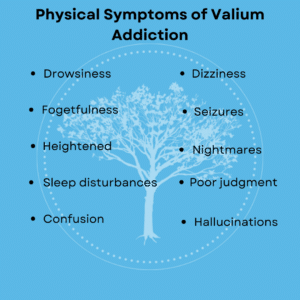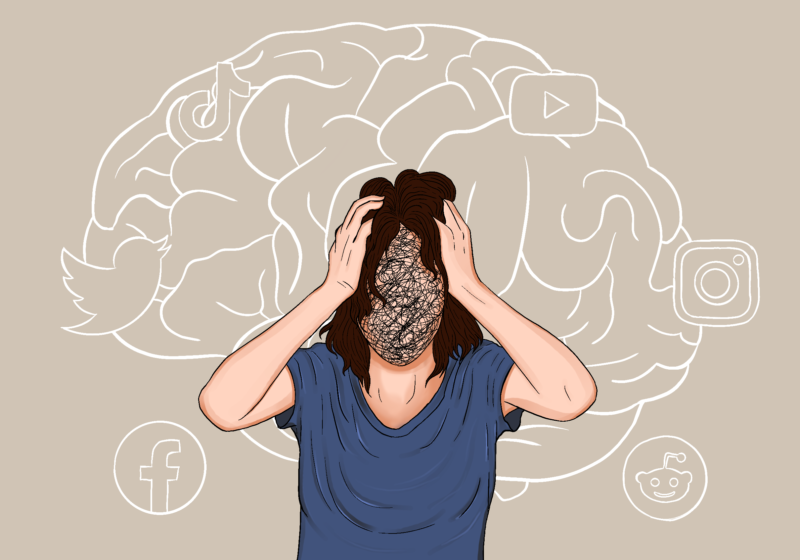Valium is a commonly abused prescription drug. If you are worried about your own or someone else’s Valium use, it is essential to know the signs of addiction.
Keep reading to learn how to recognize the signs of Valium addiction and how to get help if you or someone you know needs it.
Relevance Recovery is a drug addiction and mental health treatment center in New Jersey. Contact us today to learn more about how our treatment programs can help.
What is Valium?
Valium is a benzodiazepine that is typically safe when taken as prescribed by a doctor.
Valium works on the brain by decreasing the activity of specific nerve pathways to produce a calming effect.
How is Valium Used?
Many doctors prescribe Valium to treat mental health issues like anxiety and panic disorders.
In some cases, it can also be used to induce sleep, control seizures, and relax muscles. Before surgery or other medical procedures, it can also be used as a sedative.
Is Valium Addictive?
Valium, also known by its generic name diazepam, is a medication prescribed to treat anxiety disorders, muscle spasms, and seizures. It belongs to a class of drugs called benzodiazepines, which work by enhancing the effects of a neurotransmitter called gamma-aminobutyric acid (GABA) in the brain. While Valium can be effective when used as prescribed, it also carries a high risk of abuse and addiction.
Valium addiction occurs when a person becomes physically and psychologically dependent on the drug. Physical dependence means the body has adapted to the presence of Valium and requires it to function normally. Psychological dependence, on the other hand, refers to the intense cravings and emotional reliance on the drug. Both aspects of addiction can have a profound impact on an individual’s life.
Valium can be addictive and abused if taken in high doses or for long periods.
Valium Abuse Statistics
According to research, 8 million Americans misuse benzodiazepines, including Valium.
Women, in particular, are more likely to abuse benzodiazepines, with the rate of misuse for women being twice that of men.
Dangers of Valium Abuse
Abusing Valium can harm your health and lead to severe long-term effects. Some of the potential risks of abusing Valium include the following:
- Memory loss
- Lethargy
- Slurred speech
- Impaired coordination
- Confusion
Now that we know the dangers of abusing Valium, let’s take a look at valium addiction signs.
What Are the Signs of Valium Addiction?
The warning signs of valium addiction will depend on the person’s use habits, but there are a few common valium addiction symptoms that could suggest an issue:
- Taking more than the prescribed
- Taking larger doses than prescribed
- Becoming tolerant to the effects of Valium
- Feeling unable to stop taking it
- Spending excessive amounts of money on Valium

Causes and contributing factors of Valium addiction
Valium addiction can stem from a combination of genetic, environmental, and psychological factors. Some individuals may be more predisposed to addiction due to genetic variations that affect their brain chemistry and response to drugs. Environmental factors, such as exposure to substance abuse, trauma, or chronic stress, can also increase the likelihood of developing an addiction.
Furthermore, individuals with underlying mental health conditions, such as anxiety or depression, may misuse Valium as a form of self-medication. The temporary relief provided by the drug can create a cycle of dependence and reinforce maladaptive coping mechanisms. It’s important to address these underlying factors in the treatment of Valium addiction to achieve lasting recovery.
Risks and dangers of Valium addiction
Valium addiction poses several risks and dangers to both the individual and their loved ones. Prolonged use of Valium can lead to tolerance, requiring higher doses to achieve the desired effects. This can increase the risk of overdose, which can be life-threatening. Mixing Valium with other substances, such as alcohol or opioids, further amplifies this risk.
Long-term use of Valium can also have detrimental effects on physical and mental health. It can lead to respiratory problems, liver damage, memory impairment, cognitive decline, and an increased susceptibility to infections. Additionally, Valium addiction can strain relationships, cause financial hardships, and impair overall quality of life. Recognizing these risks is essential in seeking timely help and support.
Detoxification and withdrawal process
The detoxification process for Valium addiction can be challenging, as withdrawal symptoms can be uncomfortable and potentially dangerous. Abruptly stopping Valium can lead to seizures, hallucinations, tremors, and rebound anxiety. To ensure safety and minimize discomfort, medical professionals may taper the dosage of Valium gradually while closely monitoring the individual’s progress.
During the withdrawal process, individuals may experience a range of physical and psychological symptoms. These can include insomnia, restlessness, increased anxiety, muscle pain, nausea, and irritability. While withdrawal can be difficult, it is a necessary step towards recovery. Medical supervision and support can greatly alleviate the discomfort and increase the chances of successful detoxification.
How is Valium Addiction Treated at A Drug Addiction Center?
If you or someone you know is abusing Valium, the Relevance Recovery Center can help.
Our team of experienced clinicians will create a personalized addiction treatment plan that meets your individual needs.
Treatment center options include:
1. Medical Detox
Going through valium withdrawal on your own can be dangerous.
Our medical detox program will help you safely withdraw from Valium in a comfortable and secure environment.
During valium detox, we will monitor your vital signs and provide medications to reduce withdrawal symptoms.
2. Partial Hospitalization Program
Our Partial Hospitalization Program (PHP) will provide intensive therapy, counseling, and support services to help you address the underlying issues of your addiction.
3. Outpatient Treatment
Our outpatient treatment program is designed to give you the flexibility to continue with your daily activities while receiving addiction treatment.
4. Intensive Outpatient Program
Our Intensive Outpatient Program (IOP) provides comprehensive support and counseling to help you on your recovery journey.
5. Cognitive Behavioral Therapy
This behavioral health therapy can help identify triggers, develop coping skills, and learn how to manage cravings.
6. Teen and Adolescent Program
After school, we offer a teen and adolescent program (ages 13-18) to help young people struggling with mental health issues.
This program is uniquely designed to address issues specific to this age group.
7. Individual Therapy
Our individual therapy sessions can help you understand the root causes of your addiction, develop healthy coping mechanisms, and learn how to live a life without Valium.
8. Family Group Therapy
We offer family group therapy to help families learn how to support each other during addiction recovery.
9. Interventions
We offer intervention services if you are unsure how to approach a struggling loved one.
Interventions are a great way to get someone struggling with addiction the help they need.
Research has shown that individuals are more likely to seek treatment following an intervention.
Preventing Valium addiction and relapse
Prevention is key when it comes to Valium addiction and relapse. Educating oneself and loved ones about the risks and dangers of Valium, as well as the signs of addiction, can help identify potential issues early on. Practicing healthy coping mechanisms, such as exercise, mindfulness, and engaging in hobbies, can also reduce the risk of turning to substances as a means of escape or relief.
For individuals in recovery, ongoing support is crucial in maintaining sobriety and preventing relapse. This may involve regular therapy sessions, participation in support groups, and developing a strong network of sober friends and family. Creating a stable and supportive environment, free from triggers and enabling behaviors can significantly increase the chances of long-term recovery.
Relevance Offers Comprehensive Treatment for Valium Addiction
Valium is a commonly abused prescription drug that can be addictive. If you or someone you love is struggling with Valium addiction, the Relevance Recovery Center can help.
We specialize in treating a wide range of addictions and use evidence-based therapies to get the best results. Contact us today to learn more about how Relevance Recovery can help you on your recovery journey!









